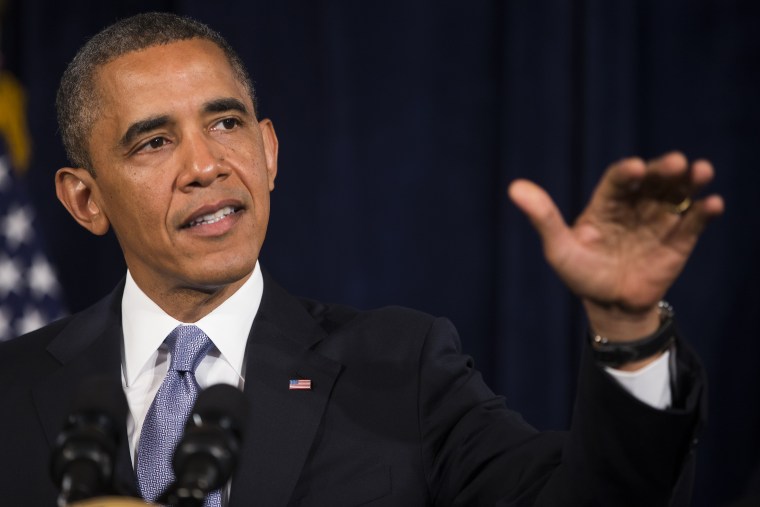President Obama announced his vision for a more efficient government in his second term, calling on tech experts in the private sector to assist in achieving his plan.
“Instead of an operation humming with the latest technology, I had to fight really hard just to keep my Blackberry,” Obama said in the State Dining Room after meeting with his new Cabinet. “As anyone knows, dealing with the federal government is not always high tech or user-friendly.”
The announcement was part of the administration's new aggressive management agenda, headed by the newly-appointed director of White House Office of Management and Budget, Sylvia Mathews Burwell. Technologies “in the pipeline” include real-time tracking of government documents (much like tracking mail packages), an auto-complete feature for government forms, and an online side-by-side comparison of private health insurance plans.
The goal of the president’s new management agenda: adopt ideas from the private sector and create new ideas that “deliver smarter, more innovate and more accountable government for its citizens" at a lower cost.
During the announcement, President Obama recalled his 2007 visit to Google headquarters in Silicon Valley, where he discussed “ways we could use technology to allow more citizens to participate in the democracy and bring the government still largely in the 20th-century into the 21st century.”
The new technologies will be built and improved in part by the White House’s second class of Presidential Innovation Fellows, stars from private sector technologies. The program, which was introduced last year, will bring 43 fellows on-board for a six-month to one year “tour of duty,” to focus on making federal data available to citizens in more streamlined, cost-effective ways.
The first round of PIFs helped develop a FEMA smartphone app that helped Hurricane Sandy victims find open shelters. The first round of PIFs were also the minds behind Portfoliostat, a program which helps identify and eliminate overlapping government IT systems that saved taxpayers some $2.5 billion.
Obama doesn't expect the legislative branch to be much help. "We're doing a lot of this work administratively. But unfortunately there are still a bunch of rules, a lot of legislation that has poorly designed some of our agencies and forces some of our folks to engage in bureaucratic hoop-jumping, instead of just going ahead and focusing on mission and delivering good service to our citizens," the president said.
